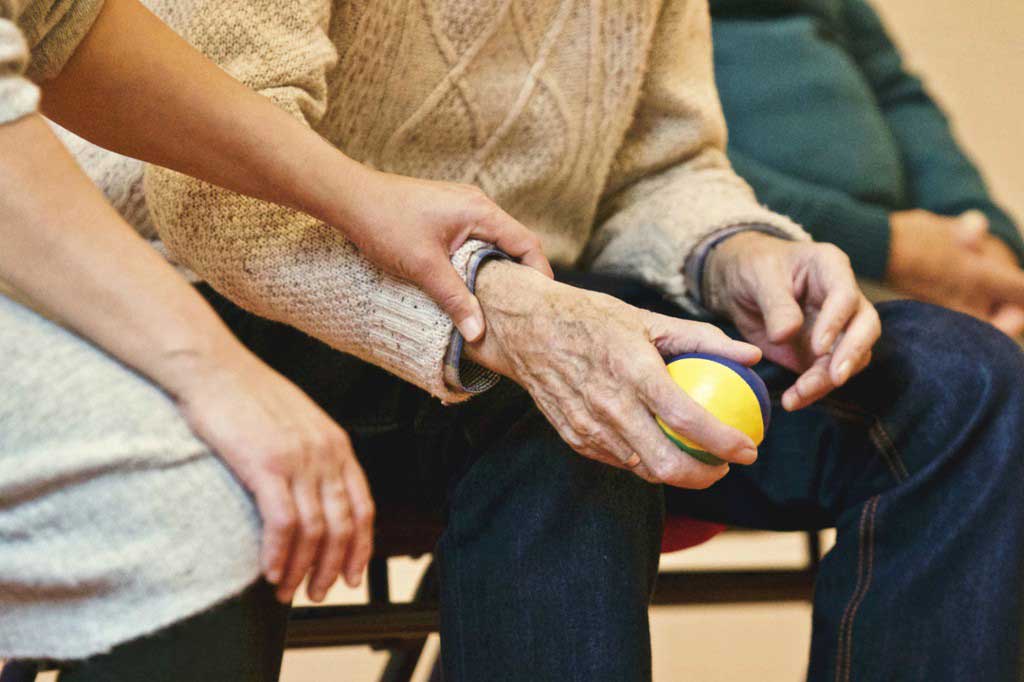NHS failures in elderly care 'not typical'
Older people
Many national newspapers have reported today on an official report by the Health Service Ombudsman into the care of older people in the NHS. The Daily Telegraph said the report showed that hospitals are “failing to meet even the most basic standards of...
Many national newspapers have reported today on an official report by the Health Service Ombudsman into the care of older people in the NHS. The Daily Telegraph said the report showed that hospitals are “failing to meet even the most basic standards of care”. The Times headline read: “The NHS has failed the elderly” and it described the report as “damning”.
The report recounts in fine detail the treatment of 10 elderly people whose cases were the subject of official complaints to the ombudsman, Ann Abraham. Nine of the 10 individuals died during or soon after their treatment and there is no doubt whatever that all 10 personal stories are “harrowing”.
In some cases, the NHS failed to ensure the patients had adequate food, drink and basic sanitary care. In others, poor pain control, inadequate discharge arrangements and poor communication caused enormous distress and suffering.
In a foreword to her report, Abraham said the 10 cases illustrated “the stark contrast between the reality of the care they received and the principles and values of the NHS”.
However, Abraham’s report is in no sense a scientific study, nor is it intended to be. While it is powerful and informative regarding the individual cases, it cannot be thought of as reliable evidence that can be applied generally to the care of the elderly across the NHS.
By definition, cases that reach the ombudsman are among the most serious and contentious. Also, it is likely that the ombudsman selected cases for the report that illustrate the important point that worrying failures of care do occur and the impact of those failures on individuals and their families. However, the report cannot tell us how frequently these failures occur, nor whether these failures represent a generalised absence of caring values across the NHS.
Making this point, Nigel Edwards, chief executive of the NHS Confederation, said: “It is of course important to put these 10 examples in perspective. The NHS sees over a million people every 36 hours and the overwhelming majority say they receive good care. But I fully appreciate that this will be of little comfort to patients and their families when they have been on the receiving end of poor care.”
Where is the report from?
The report “Care and Compassion” was written by Ann Abraham, the Health Service Ombudsman.
Her office received 9,000 “properly made” complaints in 2009-2010. Of these, 18% were about the care of older people, which is twice as many as for other age categories.
The report is addressed to the members of both houses of parliament. The ombudsman encourages the staff of the NHS to read it as well.
What is the report about?
The report includes a series of investigations carried out by the ombudsman into the treatment of 10 older people in the NHS. In a foreword, she says that, although each investigation was independent and unrelated, they have been pulled together as a series because of the “common experiences of the patients concerned”.
The ombudsman recounts the stories of each of the 10 patients and their relatives, describes the findings from the investigation, and the efforts carried out by the NHS trusts and GP surgeries to compensate the families of those involved and ensure that the events do not happen again. These stories are given in full in the "Care and Compassion" report.
What does the report conclude?
The ombudsman says the report highlights the difference between the “principles and values of the NHS Constitution” and the reality of care for older people in the NHS in England.
She says there are many skilled professionals within the NHS who provide a compassionate and considerate service to their patients. The investigations, however, show that this is not universal, and “reveal an attitude – both personal and institutional – which fails to recognise the humanity and individuality of the people concerned and to respond to them with sensitivity, compassion and professionalism.”
The ombudsman says: “The NHS must close the gap between the promise of care and compassion outlined in its Constitution and the injustice that many older people experience. Every member of staff, no matter what their job, has a role to play in making the commitments of the Constitution a felt reality for patients.”
What happens now?
Care Services Minister, Paul Burstow, said: “This report exposes the urgent need to update our NHS. We need a culture where poor practice is challenged and quality is the watchword. The dignity of frail older people should never be sidelined.”
He promised better monitoring and said: "New spot inspections by nurses, with a specific remit to check up on malnutrition and dignity of the elderly, will cast a light on poor practice.
"And we are transforming accountability by setting up local HealthWatch organisations with double the funding currently spent on patient involvement, and introducing stronger local democratic accountability - patients and public bodies with real power to influence and hold to account all local NHS services."
When are investigations by the ombudsman carried out?
Several criteria must be met before an investigation takes place. Before contacting the ombudsman, people are asked to first contact the organisation or practitioner against whom they have a complaint and to attempt to resolve their issue directly with them first. The ombudsman will usually only consider a complaint after this has happened and the complainant remains unhappy with the result.
For an investigation to take place, there must be some indication that there has been a failure that resulted in injustice or hardship. The complaint must also fall within the ombudsman’s jurisdiction, and there needs to be a prospect of a worthwhile outcome.
After all these criteria have been met, attempts are still made to resolve the issue by working with the relevant parties before an official investigation is begun.
How do you complain to the ombudsman?
Go to www.ombudsman.org.uk. Alternatively, call 0345 015 4033 (the helpline is open 8.30am to 5.30pm Monday to Friday, excluding public holidays).






 Subscribe
Subscribe Ask the doctor
Ask the doctor Rate this article
Rate this article Find products
Find products








